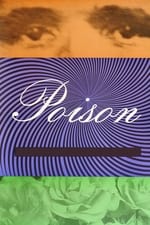Información personal
Conocido por Interpretación
Créditos conocidos 20
Sexo Masculino
Fecha de nacimiento 13 de enero de 1938
Fecha de defunción 20 de abril de 2015 (77 años)
Lugar de nacimiento Cairo, Egypt
También conocido como
- Richard Btesh
Puntuación del contenido
100
¡Sí! ¡Buena pinta!
Iniciar sesión para informar de un problema
Biografía
Richard Anthony, born Ricardo Anthony Btesh (13 January 1938 – 19 April 2015), was a French pop singer, born in Egypt, who had his greatest success in the 1960s and 1970s.
He was born in Cairo, Egypt, to a family of prominent industrialists and diplomats. As a child he lived in Egypt and Argentina, as well as studying at Brighton College in England. From 1951, he studied at Lycée Janson-de-Sailly and settled in Paris. He started studying law, but after his father's sudden death in 1956 became a door-to-door salesman to help support his family. He also began playing saxophone in Paris nightclubs.
In 1958, as Richard Anthony, he made his first recordings as a singer, initially recording French language versions of American pop hits. These included "Tu m'étais destinée" ("You Are My Destiny"), "Peggy Sue", and "Nouvelle vague" ("Three Cool Cats") which became successful in France. In the early 1960s he became one of the biggest French pop stars, with other hits including "Let's Twist Again", "C’est ma fête" ("It's My Party"), and "Et j'entends siffler le train" ("500 Miles"). He started recording at the Abbey Road Studios in England, and reached the British charts with the English-language songs "Walking Alone" (#37, 1963) and "If I Loved You" (#18, 1964). One of his songs, "I Don't Know What To Do", arranged by Ivor Raymonde, was released in the US in 1965 by Motown Records on the V.I.P. label, making Anthony the first European artist to appear for that company.
He recorded the Rolling Stones' "Ruby Tuesday" as "Fille sauvage" in 1966, and his song "Aranjuez mon amour", based on Joaquín Rodrigo's Concierto de Aranjuez, became one of his biggest international hits in 1967. He remained popular in France, having one of his biggest hits in 1974 with "Amoureux de ma femme", which was a cover version of an Italian song originally by Caterina Caselli . Most of his recordings are cover versions in French. In the late 1970s, he remarried and moved to Los Angeles for several years. After returning to France in 1982, he continued to record, perform, and appear on TV shows, and in 1998 published an autobiography, Il faut croire aux étoiles. Over his career, his total record sales were estimated to be at least 60 million.
He died in 2015, aged 77.
Source: Article "Richard Anthony (singer)" from Wikipedia in English, licensed under CC-BY-SA 3.0
Richard Anthony, born Ricardo Anthony Btesh (13 January 1938 – 19 April 2015), was a French pop singer, born in Egypt, who had his greatest success in the 1960s and 1970s.
He was born in Cairo, Egypt, to a family of prominent industrialists and diplomats. As a child he lived in Egypt and Argentina, as well as studying at Brighton College in England. From 1951, he studied at Lycée Janson-de-Sailly and settled in Paris. He started studying law, but after his father's sudden death in 1956 became a door-to-door salesman to help support his family. He also began playing saxophone in Paris nightclubs.
In 1958, as Richard Anthony, he made his first recordings as a singer, initially recording French language versions of American pop hits. These included "Tu m'étais destinée" ("You Are My Destiny"), "Peggy Sue", and "Nouvelle vague" ("Three Cool Cats") which became successful in France. In the early 1960s he became one of the biggest French pop stars, with other hits including "Let's Twist Again", "C’est ma fête" ("It's My Party"), and "Et j'entends siffler le train" ("500 Miles"). He started recording at the Abbey Road Studios in England, and reached the British charts with the English-language songs "Walking Alone" (#37, 1963) and "If I Loved You" (#18, 1964). One of his songs, "I Don't Know What To Do", arranged by Ivor Raymonde, was released in the US in 1965 by Motown Records on the V.I.P. label, making Anthony the first European artist to appear for that company.
He recorded the Rolling Stones' "Ruby Tuesday" as "Fille sauvage" in 1966, and his song "Aranjuez mon amour", based on Joaquín Rodrigo's Concierto de Aranjuez, became one of his biggest international hits in 1967. He remained popular in France, having one of his biggest hits in 1974 with "Amoureux de ma femme", which was a cover version of an Italian song originally by Caterina Caselli . Most of his recordings are cover versions in French. In the late 1970s, he remarried and moved to Los Angeles for several years. After returning to France in 1982, he continued to record, perform, and appear on TV shows, and in 1998 published an autobiography, Il faut croire aux étoiles. Over his career, his total record sales were estimated to be at least 60 million.
He died in 2015, aged 77.
Source: Article "Richard Anthony (singer)" from Wikipedia in English, licensed under CC-BY-SA 3.0
Interpretación
|
||||||||||||
|
||||||||||||
|
||||||||||||
|
||||||||||||
|
||||||||||||
|
||||||||||||
|
||||||||||||
|
||||||||||||
|
||||||||||||
|
||||||||||||
|
||||||||||||
|
||||||||||||
|
||||||||||||
|
||||||||||||
|
||||||||||||
|
||||||||||||
|







